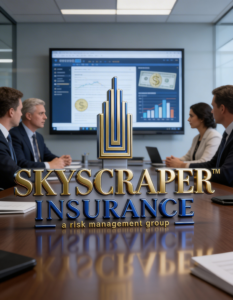Independence Day travel is expected to approach pre-pandemic levels during the 2021 July Fourth weekend, according to AAA, with more than 47.7 million Americans planning to engage in some type of adventure.
While every type of travel is markedly more popular this year compared to last year, when most of the world was in the throes of the COVID-19 battle, road trips rule the summer months. AAA expects 43.6 million people to hit the roads, many of them in RVs.
A recent survey of America’s 180 million leisure travelers found that 31% are planning on going RVing at some point this summer, RV Industry Association President and CEO Craig Kirby said recently.
“More and more Americans are ready to travel this summer, and 56 million of them are planning to go RVing in an RV they rent, own, or borrow,” said Kirby. “Even with other forms of travel returning, the desire to use an RV to get outdoors and experience an active outdoor lifestyle is stronger than ever. RVing has been cemented as a mainstream travel option that is here to stay.”
Meanwhile, traffic accidents always swell during holidays, according to the National Highway Traffic Safety Administration. When it comes to crash fatalities, July Fourth was the deadliest holiday of the year in 2019.
Safety tips for RV newbies
The RV Industry Association says 65 million Americans plan to take an RV trip within the next year, with many of them RVing for the first time.
Erie Insurance recently shared travel and safety tips for new RVers.
“With so many people hitting the road in RVs for the first time, we want to make sure they’re prepared,” said Jon Bloom, vice president of personal auto, Erie Insurance. “I know from personal experience that an RV is a great way to enjoy the outdoors and connect with friends and family, but it’s a lot different than taking a road trip in a car. We want to help people enjoy their trip and protect the investment they’ve made in their RV.”
Bloom summarized the following notable differences between road-tripping in a car and taking to the road in an RV:
- Drivability: Driving a car is second nature for people who do it all the time, but maneuvering an RV is different, especially if you’re doing it for the first time and it’s not something you do very often.
- Visibility: Anyone who drives a car is familiar with blind spots, but those can seem even more pronounced for new RVers.
- Maintenance: Both cars and RVs require regular maintenance like oil changes and tire rotations, but RVs have many additional features to attend to, like water, sewer and electrical lines, awnings, slide outs and seals.
- Getting around and gassing up: When you’re on a car trip, you use your car for sightseeing, and you don’t think twice about hitting a drive-through for dinner or pulling into any service station to gas up. Depending on the size of your RV, however, those things may not be practical.
- Insurance: Whether for a car or an RV, you’ll need liability insurance, which covers injuries to others or damage to others’ property if you are responsible for an accident, and you will also likely want comprehensive and collision insurance to cover your own vehicle.









